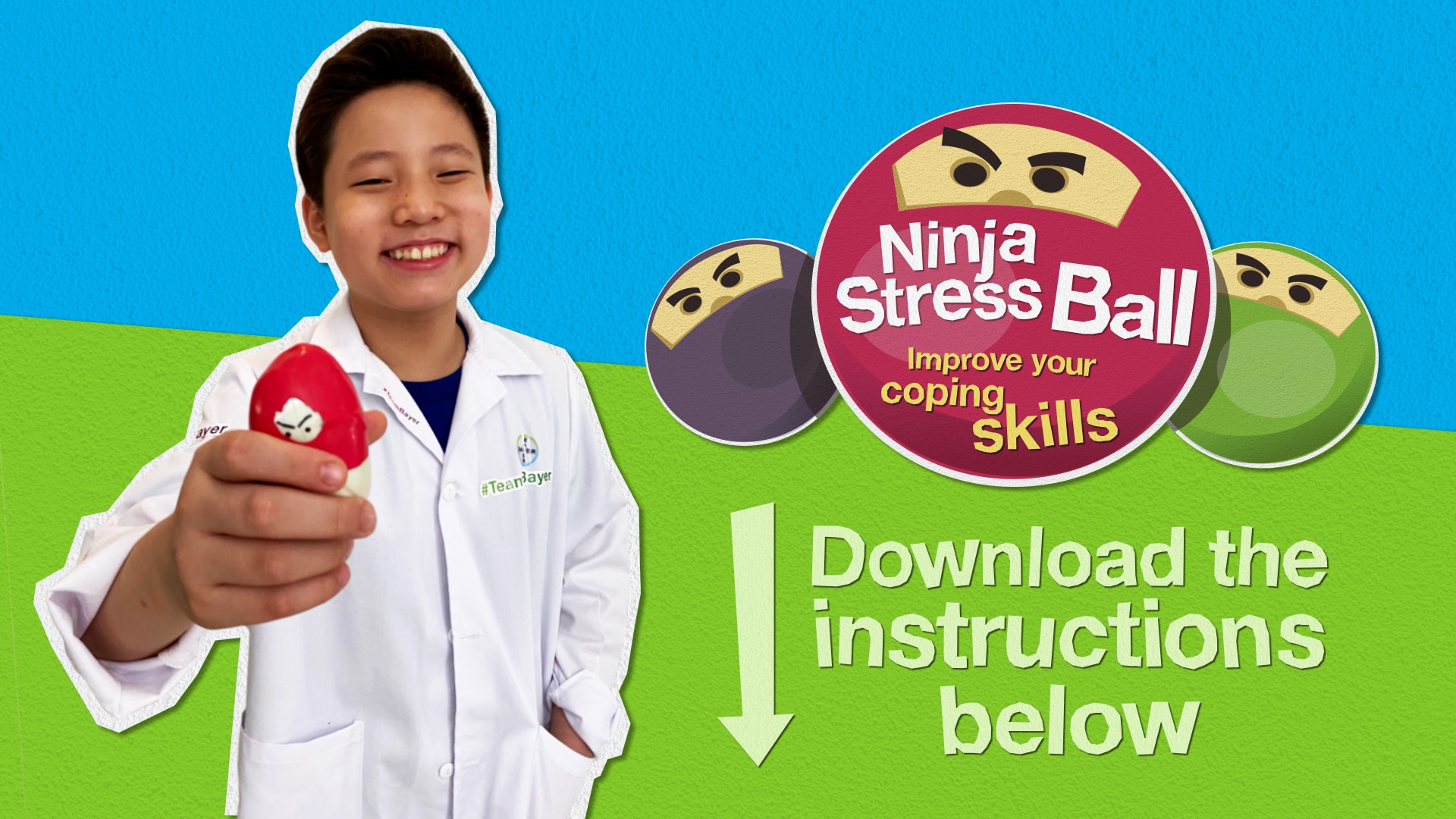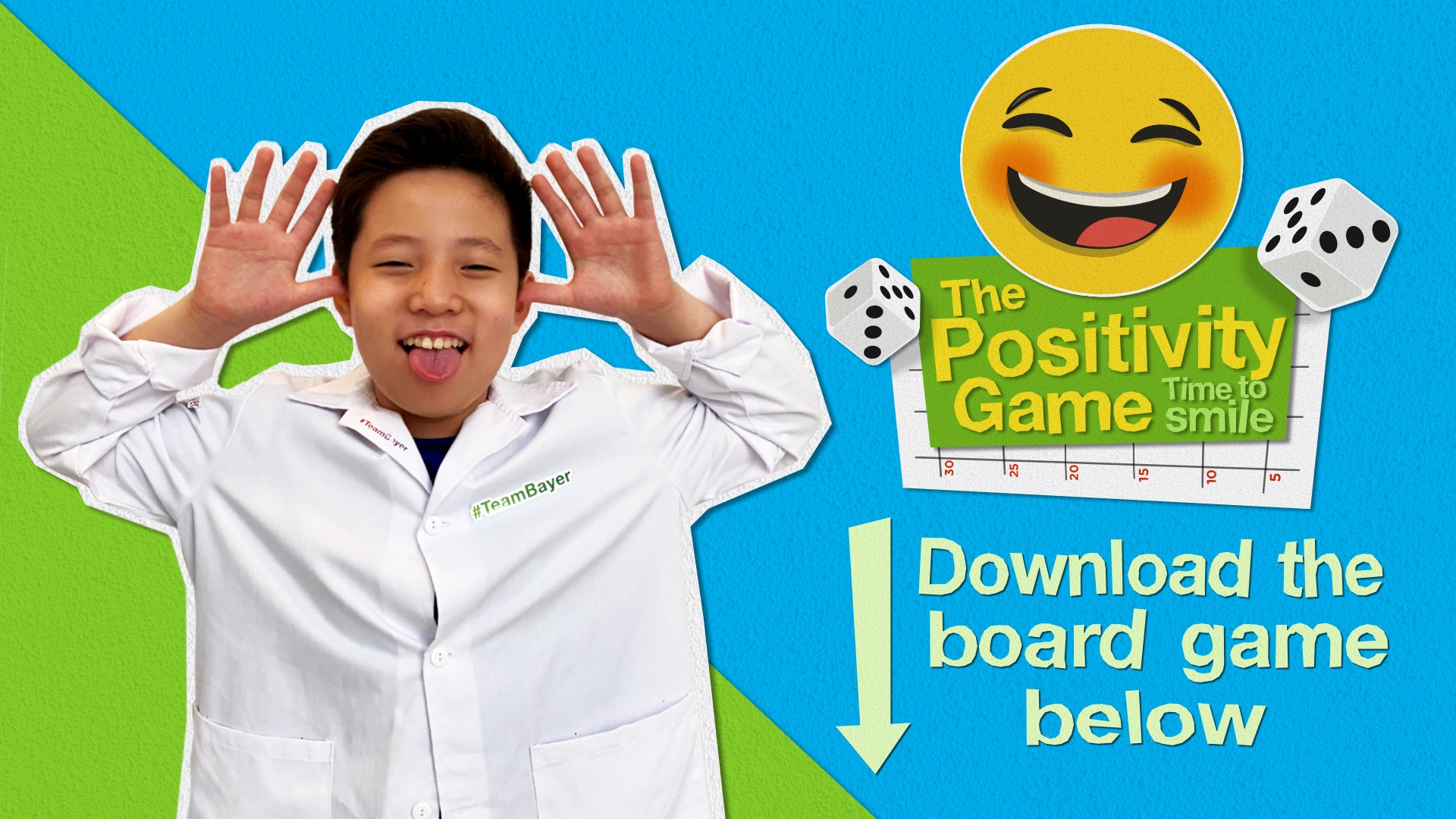Be Kind to Your Mind

How to Boost Your Mental Health
It had been a long week of homeschooling for 11-year-old Austin So. After being on lockdown for more than a year in the Philippines where he lives, some weeks felt longer than others. Sometimes his school assignments felt harder to manage when he couldn’t be in a classroom with his teacher and other students. Some days he really missed playing on the school basketball and tennis teams. And while he always missed seeing his friends, sometimes he struggled with that more than on other days. He always looked forward to the weekend, because then he could join his friends online to play their favorite video games and build imaginary virtual worlds together. This had become Austin’s new favorite way to relax in times of COVID, when the “real world” felt somewhat frightening and very far away.
Mental health in times of COVID: The struggle is real
But on this Saturday morning, when Austin excitedly got online to start gaming, his friends weren’t there. Disappointed, he decided to play an eSports game by himself instead. That was fun and made him forget his disappointment for a little while. But then he started losing. And then the game kept glitching – at least, it seemed that way to him. Or was it programmed to keep him from beating the computer? “Hey, my goalkeeper was there to block that – there’s no way that ball could have gone in!” he protested to no one. He started to feel anxious and soon his heart was pounding. It seemed that the harder he tried, the more he kept failing at a game that he could normally play quite well. Ugh…why did it seem like everything was going wrong today?
Mental Health for Parents during COVID-19
Click the link below for more mental health insights and stress relief tips geared toward grown-ups. Remember - it is harder to identify and provide the support your children may need if you are struggling yourself. Don't be afraid to tell someone what you are feeling. There is no room for taboos!
Give your mental health a helping hand
Austin’s mother heard him accusing the faceless screen as she walked by his room. “You’re cheating, computer! It’s not fair!!”
“Hey buddy – I think it might be time for a break,” said Mom, as she sat down beside him. “You seem awfully upset. What’s going on?”
“It’s just that this eSports game is so frustrating!” Austin scowled, dropping his head.
Austin’s mom gently took the game controller from him and placed her hands on his. “I think it might be more than just the game you’re frustrated about. Maybe it’s time we have a mental health check and talk more about what you’ve been thinking and feeling lately.”
Austin looked up, confused. “A mental health check? Wait…is that bad? Is something wrong with me?”
“Definitely not,” said Mom, shaking her hand. “Just as we have to manage our physical health and take good care of our bodies, we have to monitor the state of our thoughts and emotions too – that’s called our mental health. Even though we can’t see it, it’s very real and equally important – physical health and mental health go hand-in-hand.” She then took one of Austin’s hands and raised it up, spreading out his fingers. “In fact, I can think of 5 different ways in which taking good care of our bodies helps give our minds a boost. We can count them on your fingers: Sleep and Rest, Food and Nutrition, Relationships and Emotions, Exercise, and Creativity and Fun.”
What else did Austin’s mom tell him? Download the poster for a handy reminder about what you can do in each of those areas to give your mental health a helping hand.

It’s important to talk about your feelings
“OK…helping hand…got it,” said Austin with a half-hearted smile, giving his mom a thumbs up.
“Not so fast,” she said. “We’re not done yet. Those are definitely important tips for staying mentally healthy. But just like you tell me and your dad when you have a sore throat or a stomachache, I want you to tell us when you’re struggling with your thoughts or emotions too. Even if you don’t know exactly what’s wrong, we can talk about it until we figure it out. So…tell me what’s been going on lately. What has been frustrating you besides the video game? Have you been feeling sad, angry, worried, lonely? If so, it’s OK to talk about those feelings too.”
“Well…” said Austin slowly. “I guess I’ve been feeling…” Then he started to talk to his mom. And the more he talked, the more he thought of other feelings he’d wanted to express. He talked about how tired he was of being stuck at home, but also how worried he was about leaving the house because of what he’d seen on the news. He talked about being anxious that his parents or grandparents might get sick…and about being frustrated that it seemed like this pandemic was never going to end!
Learning to recognize stress
Through it all, Mom nodded and listened, and then Austin’s dad wandered in and started listening too. Dad put his hand on Austin’s shoulder and told him, “It’s perfectly normal to have all of these feelings, son. Mom and I have felt them, as I think most people have in some way. But all of this worry and frustration – it causes a physical response in our bodies called stress.”
“Oh…like when you say that you’re stressed out?” asked Austin.
“Exactly,” laughed his mom. “Only stress isn’t really a funny matter. It can be damaging to our health if we don’t find effective ways to cope with it.”
“That’s right,” agreed Dad. “And it’s important to learn how to notice when you’re feeling stressed, and know when to take action, because stress is a normal part of life. It hopefully won’t always be the huge amount of stress that comes from living through a global pandemic, but you might be stressed over homework or a test or your job or competing in a tough tennis match – or even a video game!” Then he nudged Austin and gave him a little wink. “I heard you arguing with the computer earlier.”
“Well, video games can be really frustrating, even when other things aren’t bothering me too,” Austin tried to defend himself. “I really don’t like losing!”

“I don’t think anyone really enjoys losing,” agreed Mom. “But some people learn to not let it bother them. Think about professional eSports players…they certainly can’t win every video game they play. I wonder what they do to cope with those high-pressure competitions and deal with losses?
“Yeah – what do they do? Good question, Mom!” Austin’s face lit up. “Do you think I could ask some?”
“Why not?” shrugged his dad. “My company’s sports club has an eSports team. Maybe they can share some tips with you.”
How do professional eSports players stay mentally strong?
That afternoon, Austin sent an email to the Bayer 04 eSports team in Leverkusen, Germany. Within several days, he was thrilled to get a response from not just one but two professional eSports players: Kai 'Deto’ Wollin and Fabian ‘B04_Dubzje’ De Cae.
“Dear Austin,” their message began...
Thank you for your note. Your Mom was right – professional eSports players do have to be good at managing stress or we wouldn’t have much success, because a lot of stress comes with intense competition and other parts of this job! But this doesn’t just happen by accident. We have to make a conscious effort to recognize when we are feeling stressed out and take action to fight back before it can take us down – kind of like stress-fighting ninjas! You can “fight” stress by doing something that relaxes you or helps your body get rid of some of that stress energy. Here is an idea for improving your coping skills by making your own Ninja Stress Ball.

We’ll let you in on a little secret: some people think that professional video gamers just sit in a dark room all day and night, never moving, eating lots of junk food, and staying up all hours because we can’t break away – like mindless zombies. But really, the opposite is true! Just like other athletes, we work hard to keep our bodies in prime physical condition so that our minds will also be sharp and able to make quick decisions. Our trainers always tell us to eat well, sleep well, exercise often, and even talk about our feelings – and we recommend that you do the same!
Staying mentally and emotionally strong is also what helps us pick ourselves up after disappointment and frustration. The most underrated skill on the path to becoming a champion is learning how to lose effectively. That means looking at every loss as an opportunity: identify why you lost and use that knowledge to improve your performance the next time. We'd love to share some tips about how we deal with both winning and losing. Play the video!
We hope that you find these tips helpful. Remember – whether you’re dealing with the minor frustrations of a video game or the massive frustrations of a pandemic, you don’t have to go through it alone. Telling someone how you’re feeling always seems to help. Chances are high that they’ve felt the same way and you can encourage each other.
Stay strong, Austin – both physically and mentally. We will all get through this tough time together!
Kai and Fabian
When we support each other, everyone wins
“Wow!” exclaimed Austin’s mom in surprise after he read her the email. “It was so nice of them to take the time to send you such a thoughtful message!”
But that was not all. It was an even bigger surprise when a package arrived the following week from the Bayer 04 eSports team. Kai and Fabian wanted to send Austin one more tool that will help him take positive action when he starts to feel down.
Dear Austin,
You know that little voice inside your head that starts to say negative things about yourself when you don’t win or succeed at something? You have to find a way to shut it down! We think the best way to do that is by drowning out negativity with positivity! Do something that makes you laugh, dance to your favorite music, or just remind yourself of all the things you’re good at. Here is a fun game that will give you the chance to do all of those things when you need to find your smile again!

Austin didn’t have to look for his smile when he opened The Positivity Game – and it was hard to miss his giant grin when his older brother and sister agreed to play it with him. Sometimes just being reminded that you’re not alone is enough to give your mental health a boost; playing a game designed to make you smile could change your whole week – or someone else’s. Remember that your friends or family members may also be struggling silently with their mental health. Talking about your feelings may encourage them to talk about theirs; telling them about steps you are taking to fight stress and stay positive may help them more than you will ever know. When we support each other, everyone wins.










